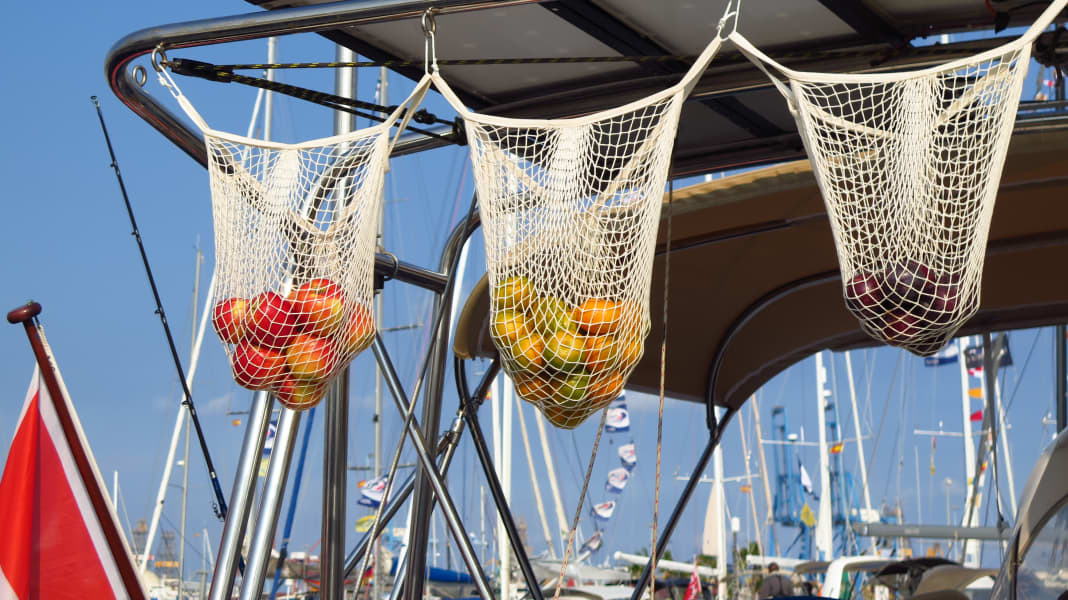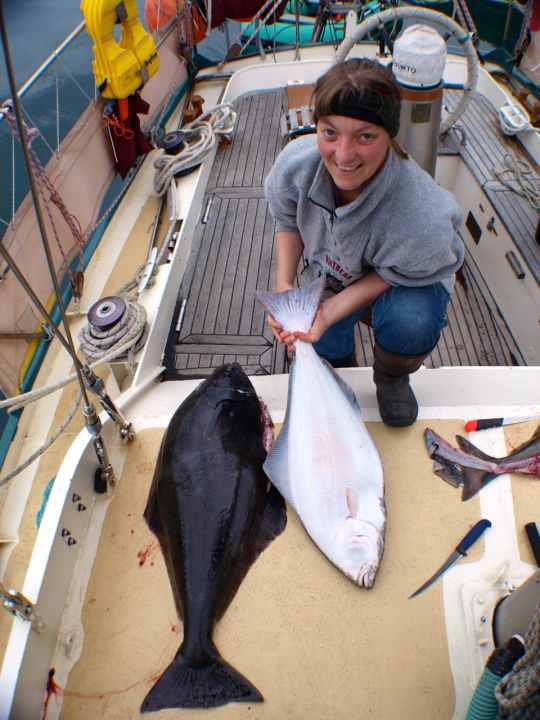
YACHT: Ms Kirchberger, can you tell us your favourite ingredients that are always on board - and why?
Claudia Kirchberger: Firstly, potatoes: they can be stored for a very long time, are rich in vitamins and are used in many delicious recipes. Then there's rice: it's easy to cook, even in stormy weather, and is great both as a main course and as a side dish. Rye flour is also great, but it is difficult to find in many parts of the world, but for us it is the basis for sourdough and tasty bread. We also stock up on spices and herbs from the countries we are travelling to. It's always great to find out the local flavours and experiment with regional spices!
What should sailors look out for if they don't feel at home in the galley and when it comes to provisions? In other words, what simple tips should everyone take to heart?
Good food does not really require complicated cooking. Much more important than complicated recipes are high-quality ingredients and a good selection of herbs and spices. It is best to buy fresh food such as eggs, fruit and vegetables directly from the producer, as they keep longer than chilled food from the supermarket. It is best to wash and dry fruit and vegetables in the harbour. The provisions should be checked regularly for damage or rot, and you should make a plan as to which foods need to be processed first. It would be a shame to use up cabbage or potatoes while courgettes and tomatoes are rotting in the fruit net!

Anything else? Perhaps a tip for cooking at sea?
On board, it is best to use large, deep pots, especially when working with hot water. And if it's too rough to boil, it can help to turn the boat round during the process.
Is there actually a cooling system on your boat?
No, we don't actually have them on board, and we don't really miss them even in the tropics.
There must be enough provisions on board even if the refrigeration fails
Many crews have large cool boxes or freezers on board. But should everyone be familiar with the basic rules of preservation?
You should at least bear in mind that if there are technical problems on the yacht, you must still be able to cater for the crew. If you are planning an ocean cruise, you need to know the basic rules of preservation and provisioning. You must have provisioned the yacht in such a way that even if your refrigeration or freezer system fails, there will still be enough food on board to complete the journey safely. And if necessary, you should also be familiar with the options for preserving slowly defrosting food after a possible failure of the freezing system until it has been eaten.
Do you always enjoy cooking and catering? How do you maintain your enjoyment of the subject?
Stocking up on provisions usually means that the next big stage is imminent, an ocean cruise, a longer period in a remote region or living away from supermarkets. Shopping, stowing and preserving are the last major preparations before setting off. And the anticipation is usually motivation enough to enjoy the work. I also usually enjoy cooking on board. But of course there are also times when kitchen work is reduced to a minimum, especially when seasickness strikes ...
In your opinion, what is the difference between provisioning for a three-week summer cruise or a three-week Atlantic crossing?
There are a few things. Even if many sailors are convinced that they won't get seasick, the first ocean crossing can show that this is not necessarily true. A supply of saltine crackers, crispbread, rice cakes, sour apples and fresh vegetables can calm the stomach and provide some energy. Bananas not only provide a lot of energy, they also slide down and up easily and prevent severe heartburn.
Plan snacks and fruit for night watches
While on a summer cruise you often only sail a few nautical miles in fine weather during the day, on a cruise the yacht runs day and night in all conditions. This means that there are hungry sailors on board at all times of the day and night! You should therefore plan enough snacks and fruit for the night watches. Snacks are very popular during the lonely hours of the night!
On many summer cruises, markets, supermarkets and restaurants are not only accessible, but are also part of the holiday programme. On the high seas, you are dependent on the provisions you bring with you. Not only do you have to bring enough, but you also want to have fresh food on board weeks later.
Is there anything else?
Another general difference is, of course, that on summer cruises you mainly cook in the harbour or at anchor - in other words, on a quiet ship. You don't have this luxury on the high seas. You should therefore check whether the party can work safely even in rough seas and know simple and time-saving recipes.
And last but not least: many summer cruises often take place within one country or region. But on an ocean cruise, you will be crossing borders. So when stocking up on alcohol, you should be aware that you will either have to pay duty on excess quantities or that you are about to smuggle ...
Can you tell us your all-time favourite recipe? One that always works, tastes good and is quick and easy to prepare?
The classic dish on board is certainly the "clan chowder": fry a chopped onion in a little oil, add diced bacon - or salami - if available. Peel five or six potatoes, cut into cubes and fry briefly. Season with salt and chilli or pepper and dust with two spoons of flour. Pour in the soup or fish stock and a dash of white wine or lemon juice and cook the potatoes until soft, stirring occasionally. Add the mussels, fresh or tinned, and finish with H cream - or milk powder and a little butter - to taste. Enjoy your meal!
Book tip: Claudia Kirchberger has self-published the title "Bordversorgung heute: Ernährung und Proviantierung an Bord von Fahrtenyachten". You can follow her travels on her blog fortgeblasen.at Track

